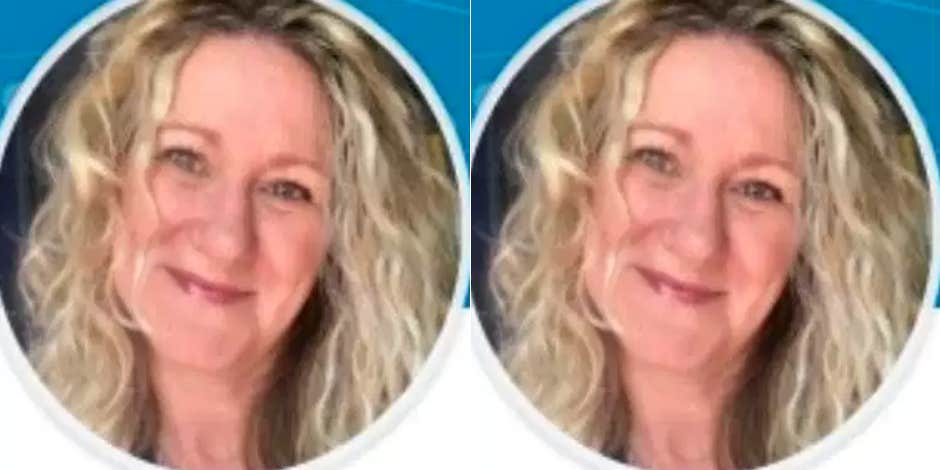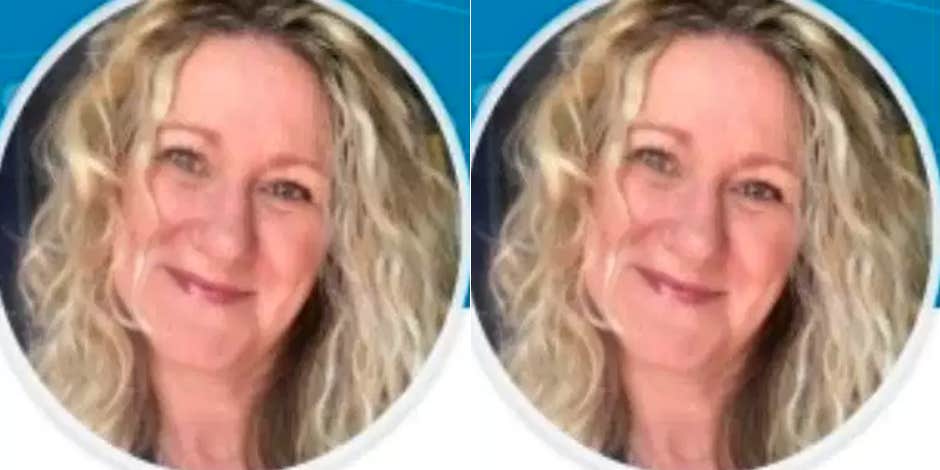Who Is Teresa Todd? New Details On The Compassionate Good Samaritan Law Enforcement Thinks Is Helping Illegal Aliens
She got arrested for doing a good deed.
 LinkedIn
LinkedIn Teresa Todd is a Texas woman who pulled over to help three young migrants. She was then arrested on suspicion of transporting illegal aliens. Todd stated to the police that she was acting as a good Samaritan. Todd is an elected official from Texas who’s also a government lawyer and single mother of two. She was recently detained (for 45 minutes, but still!) for picking up three wandering teenagers who appeared famished, parched and one of them was severely ill. She has not yet been charged with any crime, however, she could face Federal charges. Who is Teresa Todd?
Now, first and foremost:
1. Can local sheriffs even do that?
I looked into it, and yes, they can. It has to do with SB4, a Texas law that forces local governments and law enforcement agencies to cooperate with and assist federal immigration officers. SB4 mandates that local officials prioritize politicians’ anti-immigrant agenda over their communities’ safety. It requires them to fund federal government operations, whether or not it directly affects their own communities they’ve been hired to serve. It forces the local sheriffs and police chiefs to spend their limited resources and valuable time self-corroding their own community’s trust in them as law enforcers because it drives victims and witnesses of crime into the shadows, making everyone less safe by extension. Texas law enforcement officials strongly opposed the legislature not to pass, but on May 7, 2017, Governor Abbott signed it anyway.
Rest assured, local officials can still make their own decisions about whether or when to assist in federal immigration enforcement. They also aren’t penalized for declining requests to assist, and remain free to speak out against laws like SB4 (like speaking publicly about why asking about immigration status is a poor police practice that harms public safety). This is great—for those who care. Anyone who wants to can also still ask someone about immigration status if they want to. Though only during a lawful stop or arrest, and they won’t be penalized for not doing it, it really makes you wonder. Even if they can’t hold someone to further investigate their immigration status right then and there, what’s stopping them from giving that information to ICE (Immigration and Customs Enforcement)?
If you are about helping other humans instead of sending them back to an unhealthy life they’re trying to escape, this is bad. And even if you disagree that this is bad, at the very least you should think it’s not good to detain someone in need of medical attention. Like, at least get them back on their feet before you send them back! Since when do good people interrogate someone who’s choking before administering the Heimlich?
2. Teresa Todd knew the law and stopped anyway
Teresa Todd is a City Attorney in Presidio County and works at the Jeff Davis County Attorney. She earned her BA at Texas A&M University and her law degree at the University of Texas law school. For a few years she worked for an environmental rights group, and then as a defense attorney in Travis County before becoming a government lawyer for Presidio in 1998. In other words, she knows a LOT about law. And yet, when she was driving along a West Texas road at about 10 PM on February 27 and was flagged down by a migrant boy in need who looked roughly the same age as her 15-year-old son, she fought the urge to stay out of a potentially messy situation and keep her name clear. (You know the urge—that politician’s compulsion. It’s the emotional side hustle of the chosen career path). Instead, she stuck to her convictions and morals and pulled over to help the boy. Then, she immediately took action when he saw that a girl he was with was very ill. Teresa thought: "I have a 17-year-old and a 15-year-old, and he looks about the same size as my 15-year-old son, and so I literally think, ‘Oh my God, it’s like this kid on the side of the road.’ I turn around and go back, because I can’t leave a kid on the side of the road.”
3. Teresa Todd acted compassionately and responsibly
They were two of three migrants: Carlos, age 22; his brother Francisco, age 20; and their sister Esmeralda, age 18. Originally from El Salvador, they had fled their home to live with an aunt in Guatemala. They eventually left Guatemala because they were worried about intensifying gang violence. Two of Carlos’s friends had been murdered, and a gang leader had eyes for Esmeralda, according to court documents. So they went north to the United States with a group of migrants. They were separated from the group when Esmeralda got sick. By the time Teresa Todd stopped for them, Esmeralda needed immediate medical attention. Teresa started calling and texting her friends, looking for a way to help them.
4. Teresa Todd is an exemplary government official
I’m sure Teresa Todd knew what it looked like. I’m sure she knew what she was getting herself into. The “Oopsies! I didn’t realize!” card is out of the game, and I applaud her for that. I mean, aside from the reputation smudge, what did she really have to lose, materialistically speaking? Surely she could afford to physically and financially help them out in that moment. That detail says more about her character than any résumé or cover letter.
5. So how’d she get “caught?"
Apparently, Sheriff Danny Dominguez told CBS that one of his deputies had been responding to a call about a person walking along the road near Marfa. While the deputy was searching for that person, he saw a car stop and then start to drive away. That’s when, moments after she picked them up and drove off, a sheriff’s deputy drove up behind her. Would’ve been great if they stopped there to talk out the situation or even to let Esmeralda at least get the medical attention she needed, but instead Border Patrol agents arrived shortly thereafter. “They asked me to step behind my car, and the supervisor came and started Mirandizing me,” Teresa told the Times. She was read her Miranda rights and told she “could be found guilty of transporting illegal aliens.” So, like any Good Samaritan, she was like like, “What are you talking about?”
6. They searched her phone?!
Yup. The government attorney was taken into custody and put in a holding cell, where she spent 45 minutes before being released. Federal agents got a search warrant to look through her phone. She hasn’t been charged with any crime, but she could still face Federal charges.
7. So the government has it out for a respected government official because she was being a Good Person?
Well, yeah! Now, I’m not here to convince you one way or another about immigration. I just think Teresa Todd did what literally any good person should: be willing to help. Not every American has to personally pick up a stray immigrant and take it upon themselves personally to improve a stranger’s life directly, but there are a heck of a lot more steps between the bare minimum and what Teresa did. The sheriff told CBS, “If you commit a felony, whether you’re trying to help the person or not, you can’t break the law to help somebody…they need to be held up to high standards. The prosecution, whether it’s state, local, or federal jurisdiction, they can’t have double standards for who they are or what they do.”
And sheriff, I hear you. But with all due respect, can’t you be a just a bit of a better person? It’s “fool me once, shame on you; fool me twice, shame on me;” not “fool me once, shame on me, I should never let my guard down ever again lest my name be tainted and my heart vulnerable to attack.” Like, chill, man. No one cares about your name that much. Let the federal government handle immigrants, and let local authorities handle local issues.
8. “But what if the federal government is doing something in our territory of which we disapprove? Should we just stay silent?”
Of course not! But take it up at the political level. Not everyone in your community can be an immigrant activist, Susan. Some people just want to drive their kids around a safe neighborhood in peace.
Leah Scher is an ENFP finishing her degree at Brandeis University. She's an alumna of the Kenyon Review Young Writer's Workshop the Iowa Young Writers' Studio. She's passionate about Judaism, poetry, film, satire, astrology, spirituality, and sexual health. She draws inspiration for her writing from writer/director Wes Anderson, and for her lifestyle from her grandmother. Lastly, she's always actively seeking two things: a job having anything at all to do with publishing, and a chance to meet Jesse Eisenberg.
1.Teresa Todd
 LinkedIN
LinkedIN
